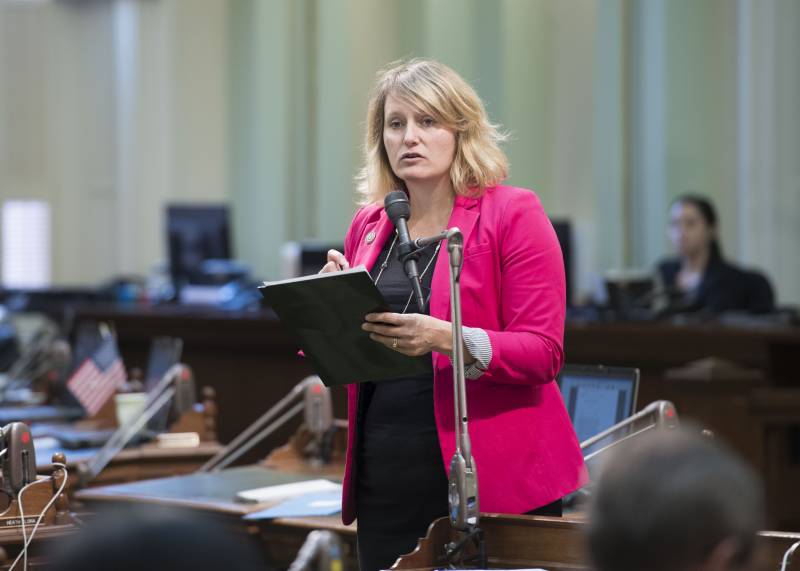If Roe is overturned, California could see a 3,000% increase in the number of people coming here from out of state for an abortion, from roughly 46,000 to 1.4 million, according to a report from the Guttmacher Institute. Wicks is one of several lawmakers working with reproductive health groups on the package of 13 bills aimed at expanding services in anticipation of this spike.
One bill that’s already been signed into law will eliminate co-pays for abortion. Other bills would set aside state money to help people who are traveling from out of state with lodging, travel and child care costs, and to help clinics expand abortion services by adding appointment slots and training more staff.
Several bills are focused on legal protections. The Texas law, SB 8, allows members of the public to sue anyone who helps a person get an abortion, including medical staff or Uber drivers who drive patients to an appointment.
California plans to refuse to help with any such lawsuit by not complying with subpoenas from other states and declining to turn over any health data requested by other states. The bill Wicks authored would ensure no one in California can be prosecuted or incarcerated for ending a pregnancy or experiencing a pregnancy loss.
Health clinics also are shoring up their security, said Lisa Matsubara, general counsel and vice president of policy for Planned Parenthood Affiliates of California, which worked on several of the bills. In addition to more patients coming from out of state, California is expecting more protestors from out of state.
“We’re definitely worried about the change in focus for anti-abortion activists, as they have effectively eliminated access in many states, to then turn their focus to states where abortion is still going to be accessible,” Matsubara said.
Some protestors already have traveled to California. The trucker convoy came to the Bay Area in late April: A stream of semis and pickups sporting American flags parked outside Buffy Wicks’ house to protest her work on legislation supporting abortion care.
“This is a direct assault on humanity,” one protestor shouted through a bullhorn.
Wicks’ neighbors did not welcome the convoy. One woman with long neon-yellow nails gave them the double finger. Other people pelted the trucks with eggs, chanting, “Go home, go home, go home.” Nearly 80% of Californians believe Roe v. Wade should not be overturned.
Buffy Wicks watched the protestors from her window. She says she’s not intimidated and won’t slow down. In fact, she and her colleagues are looking for ways to speed up the work of making California an abortion sanctuary for all.
“It’s out of necessity that we’re preparing for this, not necessarily out of desire,” she said. “We want to make sure that we are a place where people can come in their biggest moments of need and get the care that they need.”

